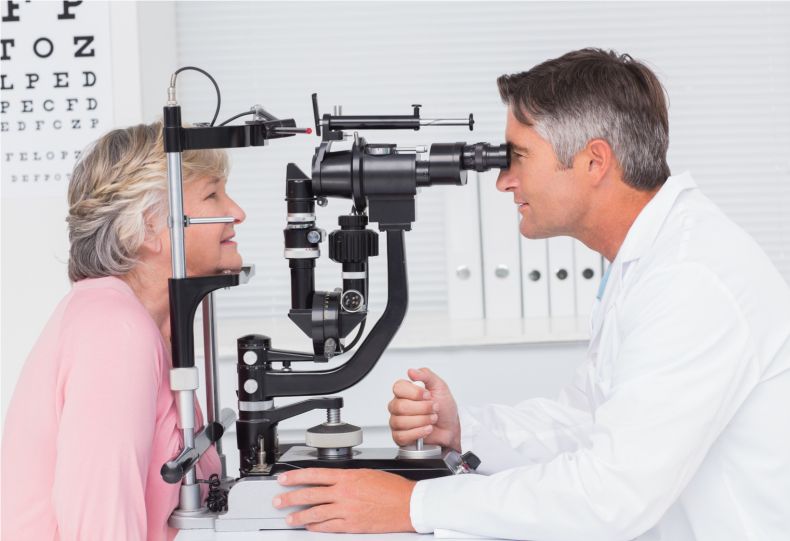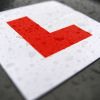But if you want to stay behind the wheel, there are some steps you need to take to remain a legal driver.
Our essential guide explains everything you need to know about driving over 70, from how to renew your licence, to driving with a medical condition and how you can reduce your car insurance costs.
Guide contents:
- Can I drive over 70?
- How do I renew my driving licence over 70?
- Do I need an eye test to renew my licence?
- Do I need a medical examination to renew my licence?
- What medical conditions do I have to declare to the DVLA?
- Do I need to retake my driving test at 70?
- How does my age affect my insurance?
- How can black box insurance help over-70s?
- What happens if I’m declared unfit to drive?
Can I drive over 70?
Yes. Although your licence expires when you turn 70, it doesn’t automatically mean you have to stop driving. It just means you will need to renew your driving licence every three years if you want to continue.
You won’t have to take another test and there’s no upper age limit for driving. If you’re still fit enough to drive, you can carry on for as long as you want.
How do I renew my driving licence over 70?
The DVLA will send you a D46P application form 90 days before your 70th birthday. You can either fill it in by hand and return it by post, or renew your licence online. Renewal is free of charge.
You can update your photo at the same time as renewing your licence – this is advisable if your appearance has changed substantially since your last application.
Your new licence should arrive within a week if you apply online. Postal applications may take up to three weeks to process.
Do I need an eye test to renew my licence?

When you fill in the form to renew your licence, you’ll be asked to declare that you meet the minimum eyesight standard for driving.
It’s illegal to drive if you can’t read a standard number plate from a distance of 20 metres, either with or without glasses. You also need to have an adequate field of vision and visual acuity must be at least decimal 0.5 on the Snellen scale (this is the opticians’ test where you read rows of letters from big to small).
To make sure you meet the eyesight standard for driving, it’s recommended you have an eye test at least every two years.
Any condition that affects your eyes, apart from long and short sightedness and colour blindness, should be reported to the DVLA.
MORE ADVICE: Driving in the dark – tips on how to stay safe
Do I need a medical examination to renew my licence?
If you’ve developed a health condition or disability that could affect your driving, you must notify the DVLA. You must also provide details if your condition has worsened since your licence was last issued. The DVLA may require you to undergo a medical examination before it decides to issue you with a new licence.
It’s worth having a medical check-up before renewing your licence anyway, and again at each renewal, to make sure you’re still fit and well enough to cope with the demands of the road.
Many older people worry they’ll be forced to stop driving if they declare a medical condition, but this isn’t necessarily the case. You might just need some guidance or adaptations made to your car, or the DVLA may issue you with a short-term licence.
What medical conditions do I have to declare to the DVLA?
It’s important to be honest about the state of your health when you apply to renew your licence. It’s an offence not to declare a condition or disability that might affect your fitness to drive and you could be fined up to £1,000.
Conditions you must disclose include:
- Dementia
- Diabetes requiring insulin treatment
- Parkinson’s disease
- Epilepsy
- Sleep apnoea
- Any physical disabilities or visual impairments
You can check if you need to tell the DVLA about a condition or disability by searching the A-Z of medical conditions that could affect your driving.
READ MORE: Safe driving with health issues
5 Star Defaqto rated cover
RAC Comprehensive Car Insurance Plus has been given a 5 Star Rating by Defaqto. Get a quote online today.


Do I need to retake my driving test at 70?
If you have a medical condition or disability, you may be required to have your driving ability assessed. Or you may decide yourself that you want an assessment to give you peace of mind that your driving skills are still up to scratch. You can either get evaluated through a mobility centre or a local driver assessment scheme. This isn't the same as resitting your driving test.
Many councils offer driver assessment schemes, as do the Royal Society for the Prevention of Accidents and the Institute of Advanced Motorists. This type of appraisal usually involves going for a drive in your own car for about an hour, accompanied by an assessor. Afterwards, they will give you a report advising you on how you can improve your skills.
For those with a medical condition or disability, a mobility centre can take you through your options, such as car adaptations. The assessment will cover physical and cognitive skills as well as driving in a dual-controlled vehicle.
How does my age affect my insurance?

Age is one of the most significant factors when your car insurance premium is calculated, and it may come as quite a surprise to see a hike in your renewal quote after your 70th birthday. Despite statistically being very safe, drivers over the age of 70 tend to pay higher premiums than middle-aged drivers because they make more expensive claims.
If you have a condition that you need to declare to the DVLA, you should also inform your insurance provider. While you might find that your premiums go up or you need to seek a specialist provider, your policy could be invalidated if you don’t declare a health condition.
READ NEXT: Automatic vs manual cars: which is better?
How can black box insurance help over-70s?
If you do encounter high premiums, black box insurance could impact your insurance premium calculation to help to bring down costs. It tends to be associated with younger drivers as they’re likely to have more accidents and therefore higher premiums, but older drivers can benefit too.
This involves having a black box, or telematics system, installed in your car. It uses GPS technology to monitor how you drive and which types of road you use most frequently. It will give you a score based on how safe you are. The safer you drive, the less you pay for insurance.
It’s possible that you could have picked up bad driving habits over the years, so a black box can also make you more aware of how you drive. Consequently, you’ll become a better driver and less likely to be involved in an accident – which will protect your no claims bonus.
What happens if I’m declared unfit to drive?
The DVLA will only refuse to renew your licence if you’re unable to meet the required medical standards for safe driving. We know it can be incredibly upsetting and challenging for people this happens to, as they’re no longer able to maintain the same level of independence and enjoy the freedom of the open road.
But there are other transport options and benefits to explore, including buses, taxis and community transport groups. Over-70s can get free bus travel and rail concessions with a Senior Railcard.
Black Box Insurance
Want to pay less for your car insurance? Whether you’re a new driver or just looking to reduce costs, we can help.








